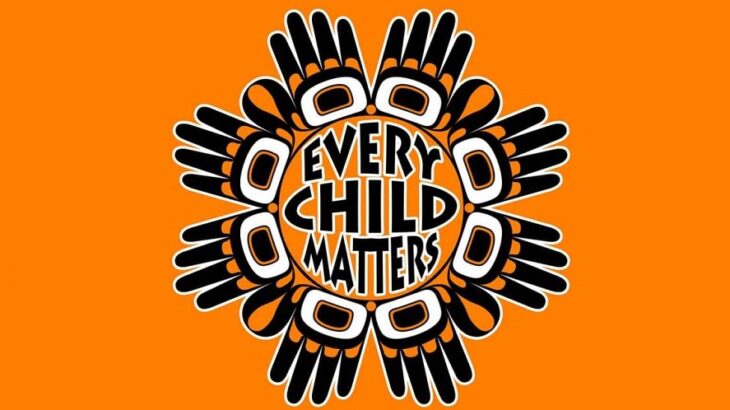Department Statement on the National Day for Truth and Reconciliation
17 September 2021

Image by Andy Everson
Thursday 30 September 2021 is the National Day for Truth and Reconciliation, which recognizes and commemorates the legacies of the Indian Residential School System and lasting intergenerational trauma of Indigenous families and communities. For more than a century, Indian Residential Schools employed the coercive power of the settler Canadian state, operating in tandem with several Christian institutions, to remove children from their families and Nations in pursuit of eliminating Indigenous sovereignty and cultures. Over multiple generations, the children incarcerated in these institutions were subject to traumatic and sustained abuse in a multitude of forms. The Canadian Historical Association has recently stated that the Indian Residential School system was not only coercive and assimilationist, but also is properly labelled genocide.
As a society, we have not yet fully reckoned with the truth of Indian Residential Schools. The recent locating and recoveries of children’s remains on the grounds of many former residential schools makes clear what Indigenous communities have long known and advocated for: the need to conduct further research and study to take account of these difficult histories. As explained in the 2015 report of the Truth and Reconciliation Commission, truth is necessary before real reconciliation is possible.
The painful and ongoing legacies of Indian Residential Schools continue to reverberate through our communities. They contribute to and play out amid ongoing violence, racism, inequality, and white supremacy, and manifest both locally and globally. The Government of Alberta’s recent decision not to enact legislation to formally enshrine the National Day for Truth and Reconciliation as a statutory holiday is just one example of intransigence in this regard. The National Day for Truth and Reconciliation is a powerful reminder of the need to take account of injustice in our lives and our work, and to act in concrete ways to facilitate lasting change.
The Department of History, Classics, and Religion recognizes that, as a community of teachers, scholars, staff, and students, we have particular opportunities and responsibilities to uncover, grapple with, and teach the truth about Indian Residential Schools. We are committed to advancing this critical work. We also recognize the importance of taking immediate action. Please refer to this document, prepared by our departmental Equity, Diversity, Inclusion, Indigenization, and Decolonization Committee, for some ways each one of us can mark the National Day for Truth and Reconciliation. These include making donations to the Indian Residential Schools Survivors Society (IRSSS), educating ourselves and others on the Truth and Reconciliation Commission’s findings and Calls to Action, and pressing for change.
The Indian Residential Schools Crisis Line is available 24 hours a day for anyone experiencing pain or distress due to Indian Residential Schools experiences and intergenerational trauma: 1-866-925-4419. A list of supports for those living in the Edmonton area is also available here.
What can I do to recognize and honour Orange Shirt Day?
Sincerely,
Ryan DunchProfessor and ChairDepartment of History, Classics, and Religion